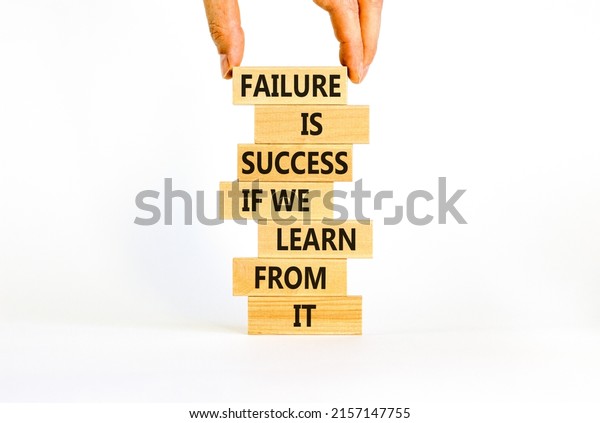Welcome to this first topic in the Entrepreneurial Thinking and Action subject (ENT101)! In this topic we will look at an introduction to effectuation and explore some key effectual entrepreneurship principles, these will be examined in detail and applied throughout the subject. We will start by exploring the sobering reality of most start-up ventures failing; however, the effectual cycle teaches us to look at failure as a step we need to take in order to learn. Rather than being immobilised by the fear of failure, effectual logic not only shows us how to take the plunge in the first place it also teaches us to fail within acceptable limits and most importantly, recognise the importance of failure in our learning and development as entrepreneurs.
Welcome to Topic 1: Fail in order to succeed. In this topic, you will learn:
- That most start-ups fail
- What is meant by the term ‘effectual entrepreneurship’
- What are the core effectuation principles
- That taking the plunge does not have to be a big, scary step
- The importance of failure.
These relate to the Subject Learning Outcomes:
- Identify the forces of change in our increasingly globalised and complex world which put new demands on entrepreneurs.
- Recognise the sobering statistic of business failures, while understanding the learning value of such experiences.
- Articulate the difference between causal and effectual logic and when both are best used in organisations.
Welcome to your pre-seminar learning tasks for this week. Please ensure you complete these prior to attending your scheduled seminar with your lecturer.
Click on each of the following headings to read more about what is required for each of your pre-seminar learning tasks.
Introduce yourself and get to know your peers as part of our first discussion forum activity. See further instructions within Topic 1: Forum activity 1.
You can also navigate to the forum by clicking on ‘ENT101 Subject Forum' in the navigation bar for this subject.
Read the following chapters of the textbook Read, S, Sarasvathy, S, Dew, N & Wiltbank, R 2016, Effectual Entrepreneurship, Second edition, Routledge.
- Chapter 4 - pp. 29-44: Fail cheap and fail quickly.
- Chapter 5 - pp. 45-55: The plunge doesn’t have to be a plunge at all.
Read through the following guide which explains the basis of effectuation and the main principles it is shaped by. It is a concise three-pager that defines effectual entrepreneurship and discusses the main differences between effectual and causal logic. Familiarise yourself with the following document and use it as a guide to refer to throughout the course.
Society for Effectual Action, 2011, ‘What is effectuation?’ Society for Effectual Action
Read and watch the following content.

The focus of entrepreneurship has long been on how to build companies. In ENT100 we looked at some of the myths around entrepreneurs fitting into a particular ‘persona’ and learnt that this mainstream image of the entrepreneur is inaccurate.
Often, entrepreneurs are perceived as having one amazing, fully planned out idea that is carefully tested through market research, and then, launched smoothly and successfully. This approach aligns with causal logic which is a goal-oriented way of thinking in which outcomes are predetermined before action is undertaken.
Research of expert entrepreneurs has in fact identified that they differ in how they think and solve problems and thus create viable ventures. They tend to use effectual logic (Read et al 2016).
While causal logic is based on setting a goal in the distance and then working back from that, successful entrepreneurs use effectual logic. Throughout this subject we will learn that effectual logic is based on assessing the entrepreneur’s available means and affordable loss, to work forward from there and take the next opportune step. We will explore effectuation and its core principles in detail throughout this subject.
The statistics of business failure and the unavoidable uncertainty we are faced with in our increasingly complex, globalised world, makes effectuation a way to help in taking the plunge and overcoming our fear of failure. In fact, effectual logic shows us that the plunge is not really a plunge at all because you take small, desired steps forward, based on the means already available to you. Furthermore, effectuation teaches us that failure needs to be reframed as it is in fact vital to our learning and growth.
As a starting point for this subject, we will explore failure in more detail in this first topic.
Most start-ups fail
While there are different ways to define failure; regardless of how we choose to define it, many new entrepreneurial ventures will in fact fail. We could define failure as the start-up not delivering a return on investment. In line with this most ventures fail, in fact, more than 67% never deliver a return for their investors (Eisenmann 2021).
Another definition of failure may see the survival rate linked to the number of years a venture operates for. In relation to this, you may have heard statistics of anywhere between 50-90% of new businesses failing. Statistics from the United States (as quoted by Carter 2021) suggest that roughly 20% of new ventures fail within the first year and 30% of all new businesses will have failed by the end of the second year. After the fifth year, roughly half of new ventures will have failed and after a decade only about 30% of new businesses are still in operation this means a 70% failure rate overall (Carter 2021).
If we relate success to a venture going public and selling shares to the public, in other words becoming an IPO (initial public offering) only 2% of all ventures will ever rich this goal. So, if going public is our definition of success then we could say 98% of all ventures will fail (Read et al 2016).
On average, it takes entrepreneurs three years before they can support themselves financially through their venture (Pickard-Whitehead 2021).
Regardless of our definition of failure, the statistics are somewhat overwhelming and we need to recognise the sobering reality of business failure.
Now that we have discussed failure, and we understand some of the statistics around this, let us take an initial look into effectual logic. Effectuation offers a different approach to dealing with uncertainty and failure than the causal logic and goals-oriented planning approach we may be more familiar with already.
What is effectual entrepreneurship
Effectual entrepreneurship is based on the study of expert entrepreneurs who constantly make decisions and take action within the context of an ever-changing, uncertain world. The very basis of effectuation states that the future is almost impossible to predict, therefore effectual logic starts from the very point we are at and identifies opportunities within this uncertainty. We will explore this in more detail in future topics. In short, effectuation provides a way for entrepreneurs to control, and in fact, create the future within the inherently unpredictable world we live in.
While effectuation minimises the risk and makes it much easier to explore new ventures, it is important to understand that there will still be failure. The way in which failure is perceived though is as a manageable, low-risk stepping stone to expanding our available means and finetuning our approach in order to create success as entrepreneurs. As Sir Richard Branson, who has seen his fair share of failure through starting 16 failed businesses, says (as cited in Alaili 2020b):
Sir Richard BransonBusiness opportunities are like busses, there’s always another one coming.
In contrast with effectual logic, you may be more familiar with causal logic. Things like predetermining goals or fully predicting opportunities, setting out specific targets for expected revenue and predicting what the market and the competitors will do, are all aligned with a causal approach (Society for Effectual Action 2011).
Effectuation is a heuristic approach; in other words, it uses trial and error to create products and services, markets and ventures. Continually learning from experiences and building an inventory of the entrepreneur’s means is key to the effectual cycle. The effectual cycle is effectuation in action. It happens when the entrepreneur puts all of the effectuation principles together and takes action. It is the way expert entrepreneurs continually refine their ventures and create new opportunities by learning from failure and ever-expanding their inventory of available means. Whilst we will just introduce this concept here, we will explore this in more detail in many of the case studies that we will look at in the following topics. Because the effectual cycle is a continuous process, learning from failure is the way to grow and develop as an entrepreneur and get closer and closer to defined, successful products and services with the needed customers and stakeholders (Read et al 2016, Society for Effectual Action 2011).
Expert entrepreneurs
During this subject, we will refer to expert entrepreneurs, as much of the research in the field of effectual entrepreneurship is based on them. Their experiences and thought patterns have taught us about the patterns and main effectuation principles. Expert entrepreneurs are defined as having more than 15 years of experience, within which they have started multiple ventures resulting in both successes and failures and have taken at least one company public with a total company share value between $250 million and $6.5 billion (Society for Effectual Action, nd).
Expert effectual logic
The following video provides some more insight into expert entrepreneurs and the way that they operate. As you watch the video, pay attention to how the effectual logic used by these expert entrepreneurs differs to causal logic where the future is predicted and planned out.
Note down the three (3) main take-outs in your reflective journal.
You can access the reflective journal by clicking on ‘Journal’ in the navigation bar for this subject.
An introduction to the core effectuation principles

There are five main effectuation principles, as explained in the last video, and these are:
- Available means (or the bird in hand principle).
- Affordable loss.
- Leverage contingencies (or the lemonade principle).
- Patchwork quilt (sometimes called crazy quilt).
- Pilot in the plane.
In order to further explore these principles, let's watch the following short video that provides an overview of effectual logic and how these five principles fit into the bigger picture of the effectual cycle.
We will delve into these principles in more detail throughout the subject and in many of the next topics, we will unpack these in relation to real-world examples and case studies.
Taking the plunge

Firstly, let’s think about the reasons we don’t take the plunge of becoming an entrepreneur or starting a venture. Typically, this is tied in with a fear of failure (Read et al 2016).
We have discussed some examples of failure earlier, each of these could prevent us from taking action. However, to give a motivational spin on not letting failure stop us, watch the following video that goes through several famous people who overcame multiple setbacks and went on to become incredibly successful.
In terms of entrepreneurship, an important aspect of effectual logic is taking action - based on the means available to you and considering what you are willing or able to lose. In this way, it becomes important for us to break down the fear of failure so that we enable action and can take the plunge.
The way to get started is to quit talking and begin doing.Walt Disney, founder Disney (cited in Alaili, 2020a)
Research shows that it is not possible to know for certain whether start-ups will succeed or if an idea will actually turn into a good business opportunity (Read et al 2016). Effectual entrepreneurship stresses the importance of taking action and giving it a go. The focus here is on implementing something creatively by using the means that are already available to the entrepreneur, with low levels of investment. In this way, taking the plunge becomes something manageable and doable, as opposed to a big scary risk. It is a way to fail within acceptable boundaries and learn quickly, adding to our inventory of available means as we do so.
Reflection
When it comes to taking action, or taking the plunge and starting an entrepreneurial venture, it's important to think about what matters to you personally as an entrepreneur. Whilst money might be part of your definition of success and indeed your motivation to become an entrepreneur what other things matter to you?
Reflect on what it is that motivates you and note down these reasons why you want to be an entrepreneur in your reflective journal.
The importance of failure

It is important for us to reflect on what we would define as failure and also what we would define as success. Read et al (2016) set out several ways to reframe our thinking around success and failure. While the reality of ventures failing can indeed be described with the statistics discussed at the start of this topic, we could also look at it again and see that almost all start-ups, 92% in fact, close without any debt (Read et al, 2016).
Often, we conceptualise failure as an endpoint. In effectual entrepreneurship, it is important to reframe this understanding of failure. Expert entrepreneurs see failure as an opportunity to learn and expand on their available means.
Reflection
This exercise, along with many reflective learning tasks which you will complete throughout this subject, provides the starting point of your reflective journal which you will develop as part of your second assessment.
An important aspect of your personal learning journey, as an effectual entrepreneur, is the ability to make failure non-terminal. In other words, we need to understand our own definition of success and failure and challenge our thinking around failure being an endpoint. Failing to do so will prevent us from learning from the experience and growing as an entrepreneur.
Take a moment to reflect on your personal definitions of success and failure in your reflective journal with the following two-part exercise:
Part 1Imagine your business card had your name on it and your job title below read ‘Failed Entrepreneur’ much like the example below. What would that failure look like? What would make you classify yourself as a failed entrepreneur?

Now do the same but imagine your business card had your name and your job title which read ‘Successful Entrepreneur’. What would that look like?

When starting a new venture, we could also look at the statistics and see that there is about a 40% chance of creating a venture that operates for eight years (Read et al 2016). Within such a venture, the entrepreneur is provided with a unique opportunity of being their own boss, making some money from the experience and learning a considerable amount.
The link between failure and success
Let's take a moment to do some research into how entrepreneurs think about success and failure. To get you started here is a quote by Tom Kelly the founder of Ideo, a leading design thinking firm:
Fail often so you can succeed sooner.Tom Kelly
It is important for us to learn from the experience of others. Having entrepreneurial role models is a way for us to learn from their experiences and reflect on how that might shape our own growth and development. Throughout this subject, you will conduct your own research and complete case studies, providing you with a sound resource library. The research you do as part of your self-directed study and tasks is also a way for you to personalise your learning journey, by finding those case studies on entrepreneurial role models that you resonate with. Doing this is also an important component of your effectual learning plan which is your third assessment.
Research and find an entrepreneur who has used failure to learn and grow. In other words, they have used failure as a stepping stone to success. See further instructions in Topic 1: Forum Activity 2, where you will share your findings with the class.
Wrap-up
In this topic, we have explored different ways to define failure; however, regardless of definition, the sobering reality is that many new entrepreneurial ventures will, in fact, fail. We have also looked at what effectual logic is and introduced the five main principles that form the basis of many of the future topics in this course and can be used to analyse case studies. Effectual entrepreneurship is based on the study of expert entrepreneurs who constantly make decisions and take action within the context of an ever-changing, uncertain world. Effectual entrepreneurship stresses the importance of taking the plunge and trying something out. Effectuation is based on implementing something creatively, using the means that are already available to the entrepreneur, with low levels of investment. In this way, failure becomes an accepted learning opportunity rather than a crippling fear that stops us from doing anything.
Key takeouts
- The sobering reality is that many new entrepreneurial ventures will, in fact, fail.
- Effectuation is a heuristic approach; in other words, it uses trial and error to create products and services, markets and ventures.
- Continually learning from experiences and building an inventory of the entrepreneur’s means, is key to the effectual cycle.
- An important aspect of effectual logic is taking action - based on the means available to you and considering what you are willing, or able, to lose
- Often, we conceptualise failure as an endpoint. In effectual entrepreneurship, it is important to reframe this understanding of failure and recognise the importance of learning from these opportunities.
Welcome to your seminar for this topic. Your lecturer will start a video stream during your scheduled class time. You can access your scheduled class by clicking on ‘Live Sessions’ found within your navigation bar and locating the relevant day/class or by clicking on the following link and then clicking ‘Join’ to enter the class.
Click here to access your seminar.
The learning tasks are listed below. These will be completed during the seminar with your lecturer. Should you be unable to attend, you will be able to watch the recording, which can be found via the following link or by navigating to the class through ‘Live Sessions’ via your navigation bar.
Click here to access the recording. (Please note: this will be available shortly after the live session has ended.)

In-seminar learning tasks
The in-seminar learning tasks identified below will be completed during the scheduled seminar. Your lecturer will guide you through these tasks. Click on each of the following headings to read more about the requirements for each of your in-seminar learning tasks.
Your lecturer will facilitate a class discussion on the cultural aspects of failure. To prepare for this, think about how failure is viewed in your home country and how you think this influences entrepreneurship. Do you think this makes it easier to fail and be an entrepreneur in certain countries?
In order to create a culture of learning and transform on thinking about failure, in the words of Scott Cook “it is important to celebrate failure” (Read et al, 2016 p35). He provides ideas on celebrating the things that have been learned as a result of failure for example closing a business or failing a specific assignment.
As a group think about examples of failure you have experienced. These examples may be in your personal or professional life. They may be small failures or big failures. Everyone in the group should come up with at least two (2) examples share these.
Then, as a group you need to come up with creative ways relating to how you could celebrate these. It may help to think of yourself as a special event manager tasked with this unique assignment of putting together ‘celebrations of failure’. Come up with as many inventive, creative, silly and serious ideas as you can.
To wrap up the seminar, your lecture will facilitate the sharing of findings from all the groups and a Q&A session to respond to any questions you might have. Be prepared to share any of your ideas around celebrating failure and raise, along with any questions you may have.
Welcome to your post-seminar learning tasks for this week. Please ensure you complete these after attending your scheduled seminar with your lecturer. Your lecturer will advise you if any of these are to be completed during your consultation session. Click on each of the following headings to read more about the requirements for each of your post-seminar learning tasks.
You will be working within your allocated groups for your first assessment for this subject. In order to prepare you, this post-seminar learning task will form the foundations of this assessment.
As part of this post-seminar learning task, you must:
- Meet with your allocated group in order to go through the assessment requirements together and brainstorm any ideas on content.
- Agree on your approach and clarify who is contributing what as part of your group work.
- Discuss how you will work effectively as a team and how you may resolve any issues or challenges that you need to overcome together.
- Set out any questions for your lecturer and be prepared to share the approach you have come up with as part of the consultation session.
Each week you will have a consultation session, which will be facilitated by your lecturer. You can join in and work with your peers on activities relating to this subject. These session times and activities will be communicated to you by your lecturer each week. Your lecturer will start a video stream during your scheduled class time. You can access your scheduled class by clicking on ‘Live Sessions’ found within your navigation bar and locating the relevant day/class or by clicking on the following link and then clicking 'Join' to enter the class.
Click here to access your consultation session.
Should you be unable to attend, you will be able to watch the recording, which can be found via the following link or by navigating to the class through ‘Live Sessions’ via your navigation bar.
Click here to access the recording. (Please note: this will be available shortly after the live session has ended.)

These are optional readings to deepen your understanding of the topic material:
- Read, S & Sarasvathy, S 2016, ‘Questions from the Effectuation Conference,’ https://www.effectuation.org/wp-content/uploads/2017/03/Effectuation-Bodo-Questions-and-Responses-2.pdf
- Read, S nd, ‘The plunge decision,’ British Airways Business Life, https://www.effectuation.org/?x-portfolio=the-plunge-decision
- Sarasvathy, S.D. 2001, ‘What makes entrepreneurs entrepreneurial?’ Society for Effectual Action, https://www.effectuation.org/sites/default/files/documents/what-makes-entrepreneurs-entrepreneurial-sarasvathy.pdf.
References
- IAlaili, A 2020a, ‘The way to get started is to quit talking and begin doing. – Walt Disney,’ Entrepreneur Post, https://www.entrepreneurpost.com/2020/11/16/the-way-to-get-started-is-to-quit-talking-and-begin-doing-walt-disney/
- Alaili, A 2020b, ‘Business opportunities are like buses, there’s always another one coming. – Richard Branson,’ Entrapreneur Post, https://www.entrepreneurpost.com/2020/11/09/business-opportunities-are-like-buses-theres-always-another-one-coming-richard-branson/
- And so am I
- Eisenmann, T 2021, ‘Why start-ups fail; it’s not always the horse or the jockey,’ Harvard Business Review, https://hbr.org/2021/05/why-start-ups-fail
- Letmeshare 123 2016, Principles of effectuation, streaming video, You Tube, https://www.youtube.com/watch?v=GoLZGSHmkRI
- Motivating Success, 2012, Famous failures, streaming video, You Tube, https://www.youtube.com/watch?v=zLYECIjmnQs&t=158s
- Pickard-Whitehead, G 2021, ‘1 in 4 entrepreneurs fail at their business before succeeding,’ Small Business Trends, https://smallbiztrends.com/2021/07/fail-before-business-success.html#:~:text=1%20in%204%20entrepreneurs%20fail%20at%20least%20once%20before%20succeeding,to%20begin%20supporting%20them%20financially
- Read, S, Sarasvathy, S, Dew, N & Wiltbank, R 2016, Effectual Entrepreneurship, 2nd ed., Routledge.
- Society for Effectual Action, 2011, ‘What is effectuation?’ , https://www.effectuation.org/sites/default/files/documents/effectuation-3-pager.pdf
- Society for Effectual Action, nd, www.effectuation.org
- The List Show tv, 2019, 3 Inspirational Kid Entrepreneurs, streaming video, You Tube, https://www.youtube.com/watch?v=FHz9BF4LIkI
